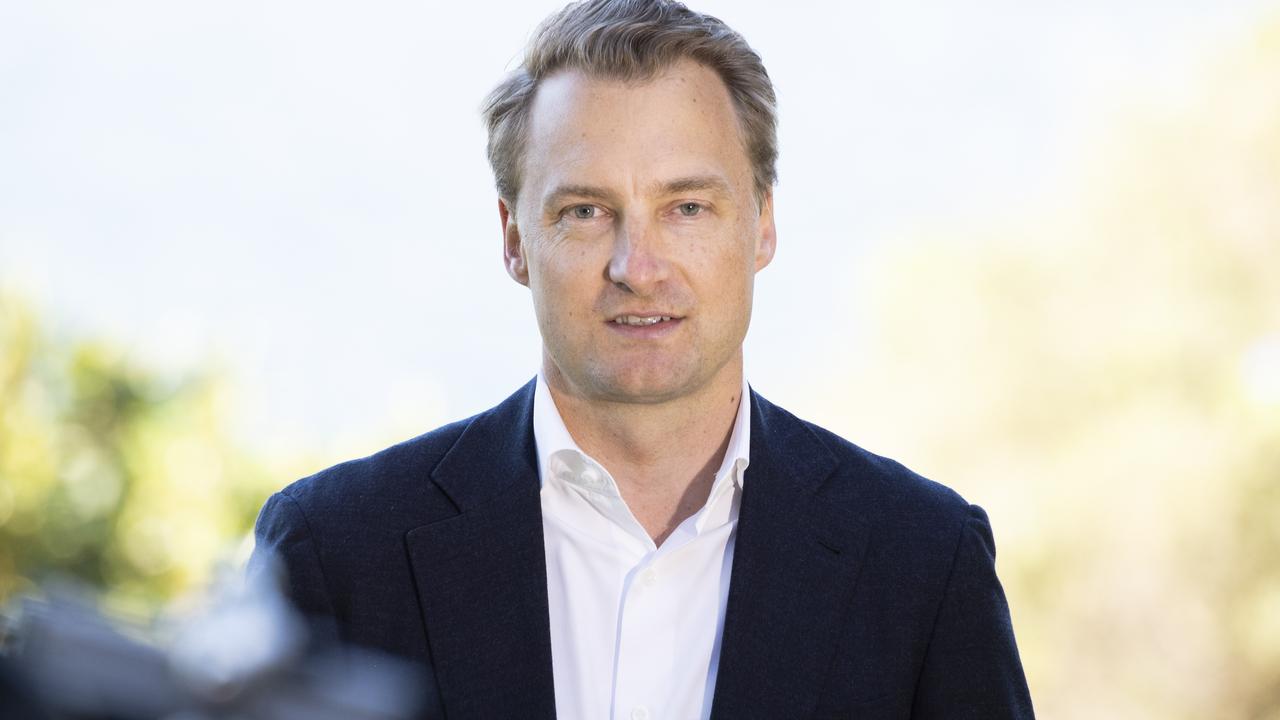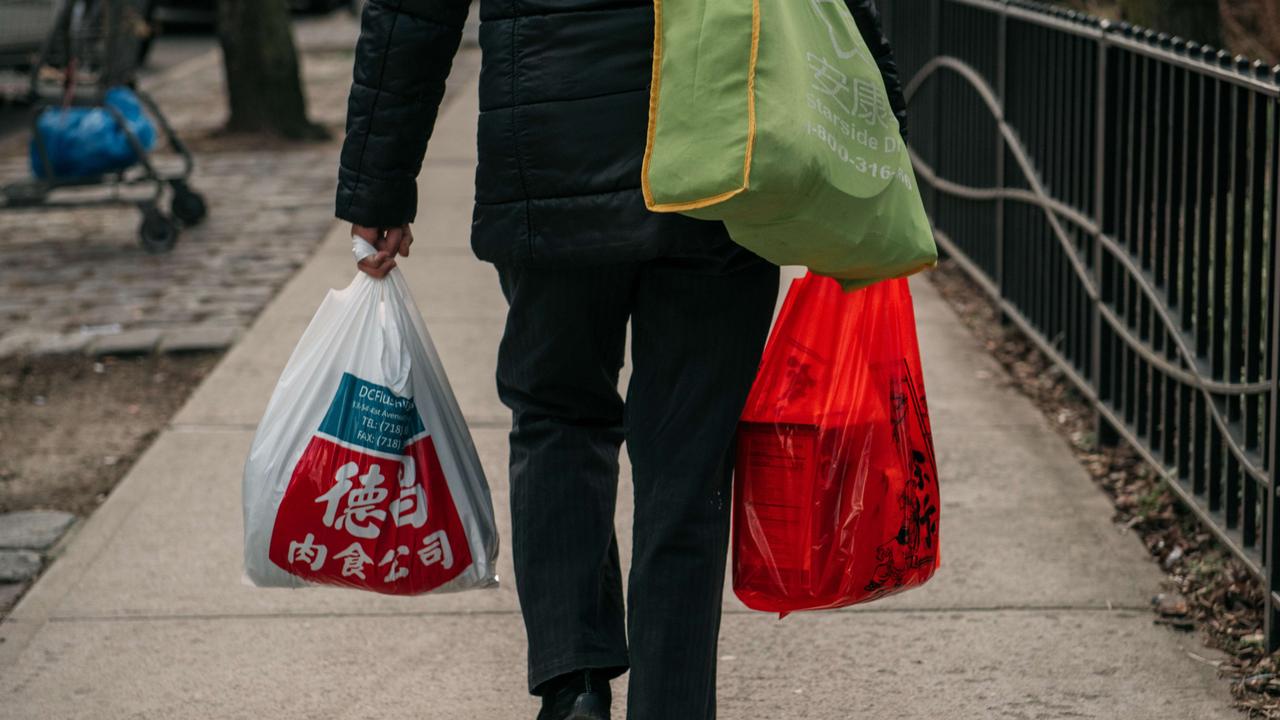NSW plastic bag ban explained: How it affects you
Today marks the dawn of a new era for Australian retail, with the final state finally banning the iconic single-use plastic bag.
Today marks the dawn of a new era for Australian retail, with the iconic single-use plastic bag officially outlawed in NSW, the last state in the country to do so.
While the ban means you’ll need to triple-check you’ve got your green bags in tow before heading to the shops, the move is also a significant step in the nation’s journey to a more eco-friendly economy.
Plastic bags won’t be the only thing to go in the bin (figuratively) before the end of the year either.
Here’s an overview of why the bag is banned, and what else is on the way out.
Why ban the bag?
The “bag ban” was first tabled in NSW parliament in the form of the Plastics Reduction and Circular Economy Act.
Brought forward by Environment Minister James Griffin, the act aimed to “protect the environment and human health … promote and support the principles of a circular economy (and) reduce the impact … of items, waste from items and waste material on the environment and human health,” marking the beginning of the end of single-use plastics in NSW.
The act passed parliament last year and is finally kicking into gear, with lightweight plastic bags of 35 microns or less, as well as compostable and bioplastic alternatives its first victims.
The ban aims to curtail the impact of plastic waste on the environment, with a staggering 60 per cent of litter in NSW currently coming from single-use plastics.
The ruling is estimated to see more than two billion items removed from landfill over the next two decades, and also kickstarts the NSW government’s push to reduce plastic litter by 30 per cent by 2025.
“We’re going to tackle a huge percentage of litter that ends up in the natural environment, which is something we know people are really supportive of – there’s a lot of goodwill and people wanting to get on with it,” Mr Griffin told news.com.au.
“Just about every single piece of plastic ever made is still with us in some way shape or form today- this is a really big challenge for us as a society.
“We’re taking a really strong step by removing these billions of tonnes that would end up in our environment, which no one wants – what we want to do is turn trash into treasure.”
Want a streaming service dedicated to news? Flash lets you stream 25+ news channels in 1 place. New to Flash? Try 1 month free. Offer ends 31 October, 2022 >

Aren’t plastic bags on the way out anyway?
Both Coles and Woolworths got ahead of the pack in 2018 by removing single-use bags – prompting customer outrage in some stores.
However, it’s still taken the NSW parliament four years to catch up – and even then, they’re the last of the states to move on the items.
South Australia was the first state to ban the bag way back in 2009, with the ACT doing so in 2011.
Tasmania followed suit in 2015, with Queensland jumping on board in 2018.
Victoria, Western Australia and the Northern Territory then all fell in 2019, with NSW holding out in a plastic fortress … until now.
“We’ve put in a big considered piece of work with this legislation … and our plastics plan helps articulate our approach with dealing with waste from the supply, right through to how it’s recycled,” Mr Griffin said.
“There’s also been a significant investment in recycling infrastructure to make sure we get it right, and this is also part of a national approach – NSW has looked at how other states have approached this, so we can position ourselves to make the most of plastic recycling.”

How will it affect me?
Don’t worry – you won’t be fined for using a single-use plastic bag for a milk run on Wednesday.
Most likely you’ve already adjusted to a largely plastic bag free grocery run anyway, with green bags lining the boots of cars and pantries across the state.
The ban will primarily deal with businesses and plastics distributors, with fines from $11,000 to $250,000 for bodies that fail to comply.
Plastic distributors will be targeted initially, and the National Retailers Association (NRA) will work with retailers as they transition away from single-use bags, with a hotline set up to accommodate questions from business owners and workers.
Why are some compostable and biodegradable bags banned?
What has raised eyebrows is the banning of certain biodegradable and compostable alternatives, with many “eco-friendly” options needing to be broken down into special industrial-sized treatment plants to truly work.
“Consumers are being potentially misled on how environmentally friendly some of these alternatives are,” Mr Griffin said.
However, he noted that rapid steps were being made to help transition retail to a greener future.
“A lot of innovation is continuing in this space – people look at plastic as waste but there’s a lot of recycling happening in the plastic space – we’re going to get to a point where there’ll be some great alternatives,” he said.
“The best thing people can do is take their tote bag, give their keep cup a go, and support local businesses that are leading the way with sustainable services.”
Mr Griffin gave The Cat and Cow café in Sydney’s Randwick a shoutout, noting that the cost of their waste management had gone down since they transitioned to a renewable approach – something he hopes will be seen across the state at large.
What else is on the chopping block?
From November 1 this year single-use plastic straws, stirrers, cutlery, plates, bowls and cotton buds will also be banned under the act.
Expanded polystyrene food ware and cups (similar to what you get your fish and chips in) and rinse-off personal care products containing plastic microbeads will also get the flick.
Not included in either ban are thicker plastic bags over 35 microns (such as bags at some supermarkets and boutique stores), produce and deli bags, bin liners, compost caddy liners, nappy bags and pet waste bags.
Exemptions will also be made for people with disabilities and medical needs, such as the use of plastic straws.




